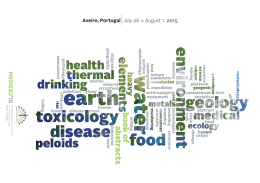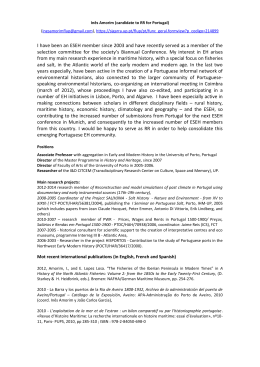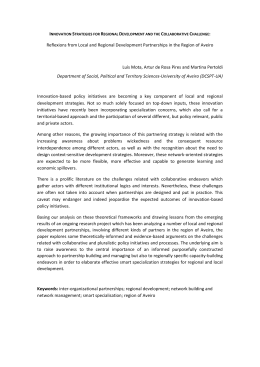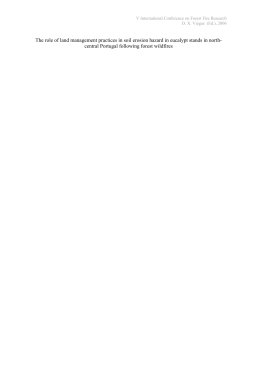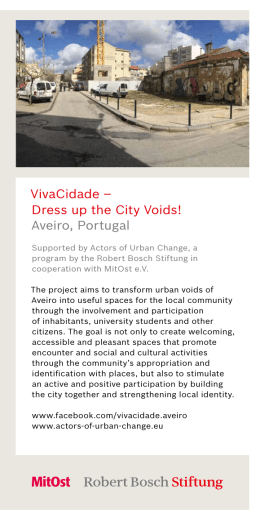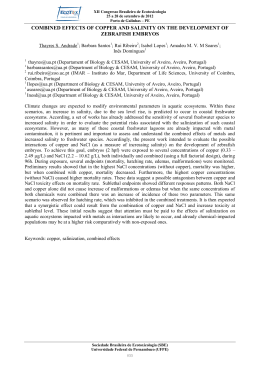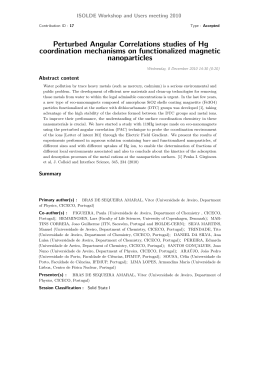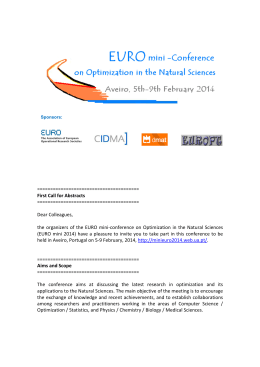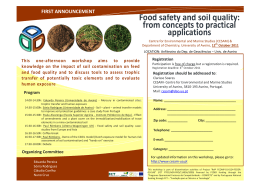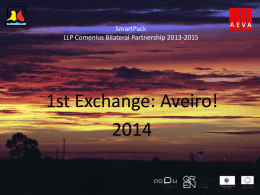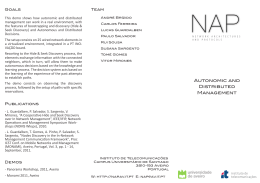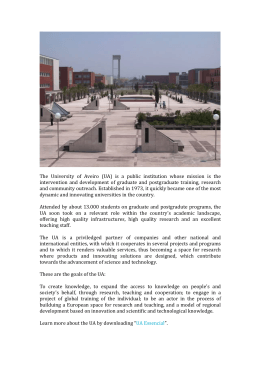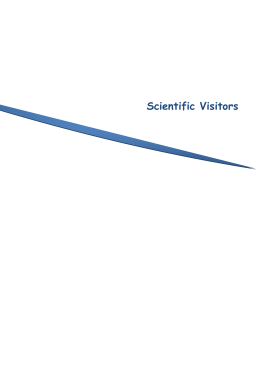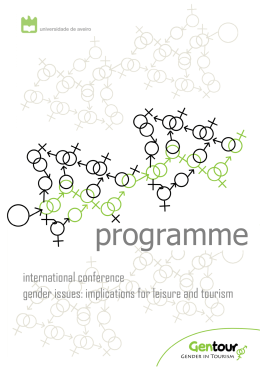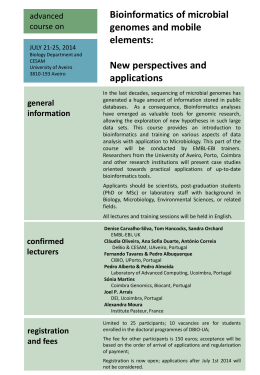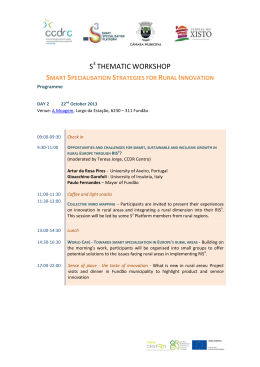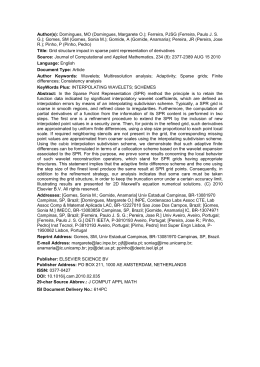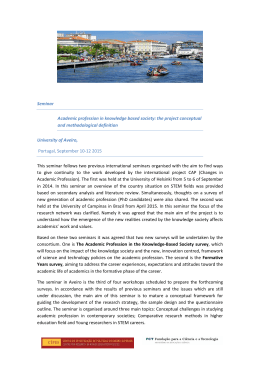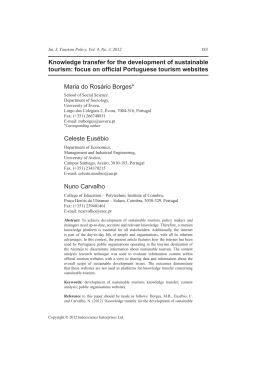Aveiro, Portugal July 26 > August 1 2015 dust abstracts 6th International Conference on Medical Geology – MEDGEO’15 organization University of Aveiro, Instituto Superior Técnico, the GeoBioTec Research Centre and the Cerena Research Centre support IMGA - International Medical Geology Association copyright 2015 6th International Conference on Medical Geology (MedGeo’15) Aveiro, Portugal, July 27-31, 2015 title MedGeo2015: Book of Abstracts of the 6th International Conference on Medical Geology editors Eduardo Ferreira da Silva, Amélia Paula Reis, Carla Patinha, Ana Cláudia Dias, Nuno Durães, Carla Candeias, José Manuel Marques, Orquidia Neves publisher UA Editora, Universidade de Aveiro address Universidade de Aveiro. Campus de Santiago. 3810-193 Aveiro. Portugal ISBN 978-972-789-449-9 prepared by Organizing Committee of MedGeo’15 MedGeo2015 [Recurso eletrónico]: Book of Abstracts of the 6th International Conference on Medical Geology / eds. Eduardo Ferreira da Silva…[et al.]. – Aveiro: UA Editora, 2015. – XXIII, 156 p. : color. ISBN - 978-972-789-449-9 Medical geology // Environmental risk assessment // Environmental toxicology // Epidemiology // Contaminants // Environmental monitoring CDU 502.17 6th International Conference on Medical Geology Aveiro, Portugal July 26 > August 1 Novel therapeutic indications – the mineral water of Termas de Águas Spa (Penamacor, Portugal) Ferreira Gomes, L.M.1, Antunes, M.H.R.2, Albuquerque, M.T.D.2, Santos Silva, A.J.1 1University of Beira Interior, Covilhã, Portugal 2Polytechnic Institute of Castelo Branco, Portugal Corresponding Author: M H R Antunes ([email protected]) Abstract Type Oral Presentation Abstract Thermal mineral waters are a potential resource in the economic development of a region. The thermal Águas Spa is located in the inner region of central Portugal and its grant will enable the exploration and exploitation of this water resource for medical and therapeutic purposes through a thermal medical spa. The study area is located in the Central Iberian Zone, central Portugal, at the village of Águas, about 42 km NE of Castelo Branco and 5 km south of Penamacor. The main idea of this research is to establish the principal water characteristics that allowed its recognition, by the Portuguese Ministry of Health, for rheumatic and respiratory diseases treatment. Termas de Águas Spa has a current use groundwater catchment located in the granitic pluton of Penamacor-Monsanto, which intruded the schist-metagraywacke complex. Topically, there are dispersed alluvial materials from the Ribeira das Termas; the main river through the survey area. This thermal mineral water aquifer is located in a slightly altered granite, highly fractured, corresponding to a semi-conined – conined aquifer, with supericial runof groundwater recharge. The groundwater catchment (AM4), about 328 m deep, holds an average low of 0.8 L/s. The main features of the mineralized water are: temperature of 19ºC, neutral pH (pH = 7.3), low mineralization (total mineralization = 244 mg/L), sulphurous (H2S = 0.31 mg/L), sodium and bicarbonate type (HCO3- = 128 mg/L, Na = 56.4 mg/L), slightly luoride (F- = 2.5 mg/L) and substantial amounts of silica (SiO2 = 35.8 mg/L), corresponding to 15% of the total mineralization. A physico-chemical comparison between the groundwater of the catchment AM4, and similar waters, corresponding to the main Portuguese thermal units, shows a lower pH (pH range = 8.3-9.5) and a lower luoride content (global average of F = 9.9-24.0 mg/L). These features may introduce novel utilities concerning to hydrotherapy, particularly in the treatment of rheumatic and respiratory diseases. 76
Download
